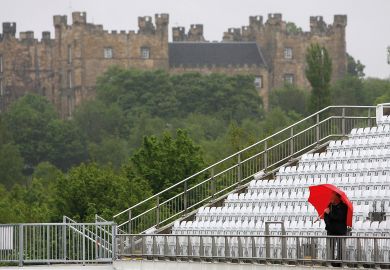Ethnic minority university applicants are less likely to receive an offer than their white British or mixed-ethnicity counterparts, even when controlling for their academic record, social background, gender and school type, a new study has found.
This discrimination was most pronounced for applicants of Pakistani ethnicity, who for every 100 applications received on average seven fewer offers than 100 equivalent white British candidates.
It is “plausible” that the differences between ethnicities could be down to direct racial discrimination by universities, the London School of Economics study concludes.
This explanation is given weight by the fact that mixed ethnicity applicants have similar success rates to white British pupils, suggesting that universities could be discriminating on the basis of applicants’ names, Black and Minority Ethnic Access to Higher Education: A Reassessment, released today, says.
But, the study points out, applicants from lower social classes also have lower offer rates, suggesting that factors other than “direct discrimination” on the basis of ethnicity may be at work.
“There may be other differences between applications, including the perceived quality of personal statements and the apparent ‘fit’ between the applicant and the course, which may be relevant,” it says.
It concludes: “The key finding from our analysis, however, is that ethnic and social class differences in offer rates could not be fully explained by differences in academic attainment or patterns of application.”
Controlling for academic qualifications, social class, gender and school type, applicants of Pakistani ethnicity were least likely to receive an offer, followed by: Bangladeshi; Black African; other ethnic groups; other Asian; Black other; Indian; and Black Caribbean applicants.
Tariq Modood, professor of sociology, politics and public policy at the University of Bristol, who was one of the study authors, said: “Young people from lower social class backgrounds and some ethnic minority groups are less likely to attend schools that are geared towards getting pupils into higher education or to come from families that are familiar with the application process.
“Having access to good advice from teachers to help students choose the right combination of A levels and write a good personal statement can have a massive impact. We need universities to do more work with schools to ensure that the process is fair to all,” he said.
The study looked at 50,000 students living in the UK (excluding those from Northern Ireland), who applied in 2008.
Register to continue
Why register?
- Registration is free and only takes a moment
- Once registered, you can read 3 articles a month
- Sign up for our newsletter
Subscribe
Or subscribe for unlimited access to:
- Unlimited access to news, views, insights & reviews
- Digital editions
- Digital access to THE’s university and college rankings analysis
Already registered or a current subscriber? Login




